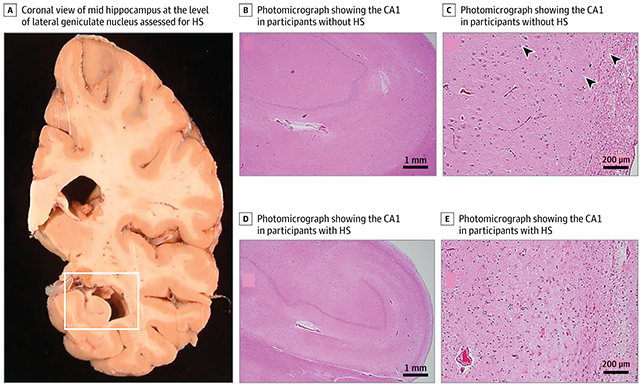The Mediterranean diet and others like it have been extensively linked to reducing the risk of disease, cognitive decline, and premature death. Now a new study provides more evidence that this choice of foods can protect against dementia – as well as giving us some clues as to why.
A team from Rush University Medical Center in Chicago wanted to look specifically at the MIND (Mediterranean-DASH Intervention for Neurodegenerative Delay) diet, which combines elements of the Mediterranean diet with the DASH (Dietary Approaches to Stop Hypertension) diet.
That's a lot of acronyms, but it essentially means lots of vegetables, whole grains, fish, and poultry, and not so much dairy, red meat, and fried food.
Related: Ask Yourself These 4 Questions Before You Start a New Diet
The researchers investigated links between this balance of food items and hippocampal sclerosis – a condition linked to dementia and Alzheimer's, where neurons die off in the brain's hippocampus.
Analyzing the postmortem brains of 809 people for whom diet information had been logged for several years before their death, the study found that those who stuck closest to the MIND diet were less likely to show signs of hippocampal sclerosis.
"These findings suggest that consuming a healthy diet, such as the MIND diet, may decrease the likelihood of hippocampal sclerosis and may support hippocampal health," write the researchers in their published paper.

The diet's impact on dementia risk has been well established by prior research. This latest study offers fresh insight into a significant part of the reason why that link is there: the foods in the MIND diet appear to protect the hippocampus in particular.
Crucial to remembering, learning, and navigating, damage to the hippocampus is closely tied to dementia. While not everyone with hippocampal sclerosis has dementia, or vice versa, there's a significant overlap between the two conditions.
The research accounted for a variety of demographic and genetic factors, but isn't enough to prove direct cause and effect. What it does show, together with earlier studies, is a strong probability that dementia risk is to some extent affected by what we eat.
"To our knowledge these are the first findings in human studies to report that the association of diet and dementia is partially mediated by hippocampal sclerosis," nutrition epidemiologist Puja Agarwal told Hannah Millington at Newsweek.
It's not clear how hippocampal sclerosis gets started, but scientists are continuing to discover more about it, and its connections to dementia. It's not the first time it's been shown that the health of this part of the brain could be affected by diet.
Future studies may endeavor to understand why this link exists. It's possible that the anti-inflammatory and antioxidant effects of the foods in the MIND diet are helping to guard the brain's neurons from damage in some way.
"To further understand the mechanisms linking diet and nutrients with the overall brain health, investigating diet's relationship with other biomarkers of neuroinflammation and oxidative stress in the brain will be critical," write the researchers.
The research has been published in JAMA Network Open.
